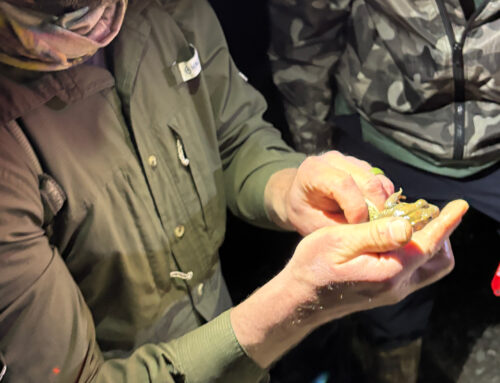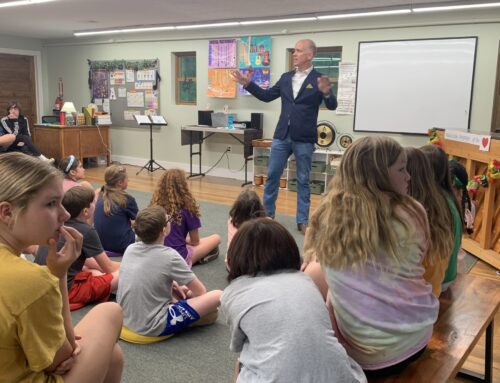
Mrs. Meylink with students in Nigeria
To say that Mrs. Meylink has had an exciting journey leading her to Tate’s School would be an understatement. From teaching in Yemen and Kazakhstan, to creating a food sustaining garden with her 5th grade students in Abuja, Nigeria that is still in production to this day, we are so fortunate to now have her as a member of our Tate’s family!
We recently sat down with Mrs. Meylink to ask her a few questions so that you can get to know her a bit better. Here are some of her answers.
Q: What lessons can you apply to your classroom to broaden their minds?
A: “Waste and diversity are the two most important concepts that I have brought back to my students from my experiences overseas. Working at an international school gave my family the opportunity to have a community of several different nationalities all in one place. Every year we had about 30 or more different countries represented in our different schools. You find that no matter what country you are from, students are very similar in that everyone is just trying to find their place in the world and experience the same types of friendship as everybody else.
“Going to another country also makes you realize how much waste you produce as a human being and how that impacts the environment and the people around you. I experienced downright poverty and desperation in my seven years of being overseas as I watched children begging for food along the streets, with stomachs bulging from gases to replace the nutrition they so desperately need. Then returning to the United States to see children take an overabundance of food for their school lunch. One of the biggest lessons that I talk to my students about is taking only what they know they will eat so that we are not being wasteful.”
Q: What types of hands-on education have you found beneficial in your experience teaching overseas?
A: “One of my favorite projects that I worked on with my fifth graders was in Abuja, Nigeria. Our students were required to write a research report, and I decided that we were going to make it into a community project. The students researched the types of foods that are best grown in Nigeria, types of tools needed, how to build a garden, and how to maintain a garden in the Nigerian climate. There was a local school nearby that had about 60 students per classroom, and most students also worked as housekeepers and attended school only when they had a chance to be off work. Due to the flexibility of the classrooms, this local school did not have a lunch program, so most students were hungry when they made it to school. Together my two fifth grade classes fundraised money to build a sustainable garden on the local school’s property. Using the research from their writing project we were able to build and provide support to the local school, so that students were no longer hungry. I have kept in touch and know that this garden is still flourishing after five years!”
Q: What are the major lessons you have learned from teaching abroad?
A: “The most important lessons that you can learn from being in a foreign country is the appreciation for the freedoms and conveniences that you have in the United States. Our family lived in countries where the rights of women were very restricted, and the right to worship had to be done in private or in secret. We also experienced a lot of discrimination and inconvenience that helped us to give a better perspective on the world and opened our hearts to all types of people. The biggest luxury that we realized upon our return to the United States was the convenience of food, but also the appreciation for homemade food. In the countries that we lived in, there was no such thing as a “frozen food” section. All our ingredients were fresh, and we made all our meals with fresh ingredients. There were no bagels or taco shells for purchase, it all had to be made by hand if we wanted to have it. It is still hard for me to purchase frozen meals or easy microwavable side dishes, when it tastes so much better to make it myself.
“On that same note, time also became quite precious upon our return. I think most of us here in the United States do not realize how many activities we push into our lives. We enroll our kids in a million after school activities and do not take the time to just relax and enjoy our lives. Life was simpler overseas. We did have the time to make our meals from scratch, enjoy trips with our family, but still get involved with our community. The simplicity of life overseas is what I miss the most. However, I cannot return now that I have two grandchildren that have stolen my heart.”



